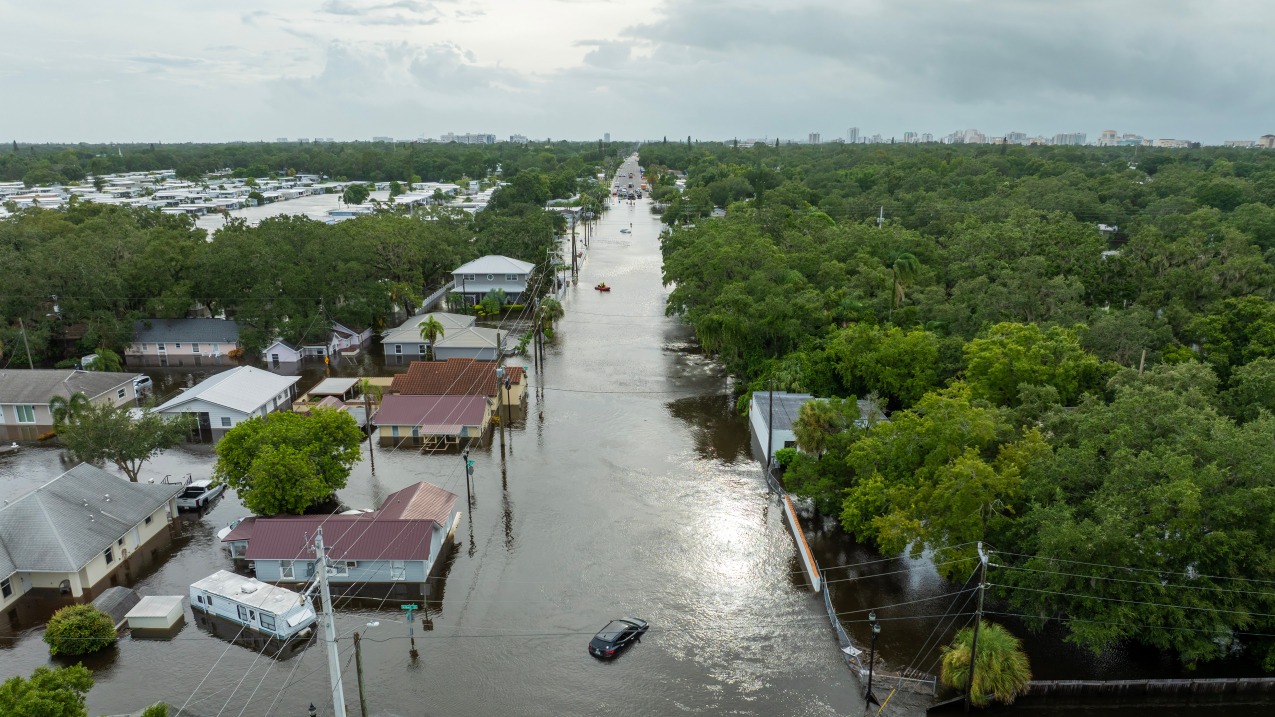Today, the Department of Commerce and NOAA announced $999,846 in funding will be awarded over three years to existing NOAA Climate Adaptation Partnerships (CAP) teams and regions, including emerging CAP partnerships. The funding will be used to bring members of frontline coastal communities together to develop plans to address the worst impacts of climate change and coastal flooding. These funds are made possible by the Biden-Harris Administration’s Bipartisan Infrastructure Law.
According to the latest figures from NOAA’s National Centers for Environmental Information, the U.S. has sustained 400 separate billion-dollar weather and climate disasters since 1980, including 44 flooding events. The new funds will enable NOAA to help communities develop strategies to plan for and adapt to coastal flooding in the Great Lakes and Gulf Coast regions and parts of the East Coast including Florida, New York, New Jersey and Pennsylvania.
“This investment, part of President Biden’s Investing in America agenda, will strengthen partnerships between neighborhoods, community organizations, social services, public health agencies and regional planning authorities to build flood resilience and generate climate-smart economic growth in coastal communities nationwide,” said U.S. Secretary of Commerce Gina Raimondo.
The awarded projects will:
- Strengthen community engagement in frontline communities in Miami-Dade County and the Urban Northeast offsite link to ensure that the diversity of people and concerns, including historically undeserved and vulnerable populations, is represented well in the planning and implementation of flood resilience projects.
- $500,000 to the City University of New York, Columbia University, Drexel University, Florida International University and University of Miami.
- Bring together members of frontline communities in the Great Lakes and Gulf Coast regions to explore how researchers and communities can work together to produce a stormwater vulnerability assessment plan that takes into account the concerns of the community at the very local level, including historically undeserved and vulnerable populations. Use a process that guides practitioners through a municipal stormwater vulnerability assessment using a web-based tool with customized climate and socioeconomic information and a series of stepwise assessment questions.
“These new awards align with the agency’s new Equity Framework to make equity central to NOAA’s mission of science, service and stewardship,” said Assistant Secretary of Commerce for Oceans and Atmosphere and Deputy NOAA Administrator Jainey Bavishi. “Working with frontline communities helps us to accelerate our work to put equity at the core of everything we do.”
The NOAA CAP program is an applied research and engagement program that expands society’s regional capacity to adapt to climate impacts in the U.S. CAP supports sustained, collaborative relationships that help communities build lasting and equitable climate resilience. Funded by five-year cooperative agreements with NOAA, the work is accomplished by teams of research institutions, nonprofit organizations and state, local and tribal governments in multi-state regions. The NOAA CAP program also advances the Biden-Harris Administration’s Justice40 Initiative, which sets a goal that 40% of the overall benefits of certain federal climate, clean energy and other investments flow to disadvantaged communities that are marginalized by underinvestment and overburdened by pollution.
Visit NOAA’s Bipartisan Infrastructure Law website to learn about current and future funding opportunities.
Climate, weather and water affect all life on our ocean planet. NOAA’s mission is to understand and predict our changing environment, from the deep sea to outer space, and to manage and conserve America’s coastal and marine resources.
Source link
julie.bedford www.noaa.gov

